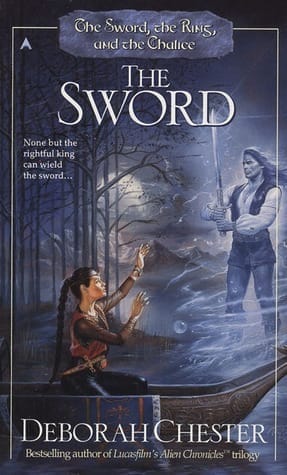Don’t Judge a Book by Its Title: Best Fantasy Books with Generic Names

In the world of fantasy fiction, some of the most captivating stories come with surprisingly generic titles. Names like The Sword, The Mage, or The Book might sound simple, but these titles often hide complex, magical narratives within. This list explores top fantasy books with generic titles that deliver unforgettable adventures, richly developed characters, and expansive world-building.
Whether you’re searching for hidden gems or curious about titles that undersell their brilliance, this list will introduce you to fantasy novels that are anything but ordinary.

1. The Sword by Deborah Chester
The Sword is a graphic novel created by the Luna Brothers that blends action, fantasy, and drama. It follows a seemingly ordinary young woman whose life is suddenly upended when she discovers a mysterious ancient weapon. This discovery propels her into a violent and supernatural journey, where she must confront powerful enemies and uncover long-buried secrets. The story combines intense battles with emotional depth, exploring themes of destiny, vengeance, and inner strength.

2. The Gift by Alison Croggon
Also known as The Naming in some regions, The Gift is the opening volume in the Pellinor Quartet. It follows Maerad, a slave girl who discovers she is part of a long-lost lineage of Bards with magical powers. With poetic language and echoes of Tolkien, Croggon crafts a world filled with ancient songs, dark magic, and a destiny Maerad never imagined.

3. The Book by M. Clifford
Set in a future where reading is illegal, The Book tells the story of a man who discovers a mysterious paper volume that could unlock a revolution. Though the title is deceptively simple, the narrative explores themes of censorship, resistance, and the power of stories in a society that fears them. It’s a gripping blend of dystopian fiction and modern myth.

4. The Dragon by Gene Wolfe
Originally a short story, The Dragon is part of Gene Wolfe’s Book of the New Sun universe. It tells the tale of a young warrior who encounters a creature known only as "the dragon" in a dying world. Though brief, the story is dense with allegory and mystery, showcasing Wolfe’s signature layered storytelling.

5. The Mage by Jean Johnson
Part of the Sons of Destiny series, The Mage centers on one of eight magical brothers cursed to live in exile until each finds love. This installment blends elemental magic, prophecy, and slow-burn romance. Though the title is simple, the book is rich with emotional stakes and magical tension.

6. The Shadow by K.J. Parker
Shadow, the first book in K.J. Parker’s Scavenger Trilogy, opens with a man awakening amidst the aftermath of a brutal battle, surrounded by corpses and devoid of any memory of his identity or past. Armed only with a sword and fragmented dreams, he embarks on a journey through a war-torn empire rife with political intrigue and enigmatic religions. As he traverses this fractured world, he encounters individuals who recognize him—often with hostility—hinting at a possibly dark and complex history. Parker masterfully immerses readers in the protagonist's confusion, revealing the intricacies of the world and the character's past through fragmented dreams and elusive clues. This narrative choice keeps readers as uncertain as the protagonist, enhancing the story's depth and engagement. With a blend of dry wit, philosophical undertones, and a richly detailed setting, Shadow offers a compelling exploration of identity and redemption in a world where the line between hero and villain is intriguingly blurred.

7. The Wizard by Gene Wolfe
The Wizard by Gene Wolfe is the second volume in the The Wizard Knight duology, continuing the tale of a young man from our world who is transported to a richly layered fantasy realm. Now matured and bearing a new identity, he navigates a complex landscape of magic, myth, and political intrigue. Wolfe’s narrative is introspective and philosophical, weaving themes of honor, identity, and the nature of heroism into a deeply immersive and intellectually engaging story. The novel unfolds through a personal and reflective lens, offering readers a richly textured journey through an intricately built world.
Final Thoughts: Why Generic Fantasy Titles Work
Fantasy books with generic titles might not jump out on a bookstore shelf, but they often pack just as much (or more) magic, world-building, and intrigue as their more elaborate counterparts. These stories prove that sometimes, simplicity in title leaves room for complexity in storytelling.
Love Fantasy Books? Join the FantasyReaders community on noplace to meet other fantasy reader fans & yap about the books & characters you love!